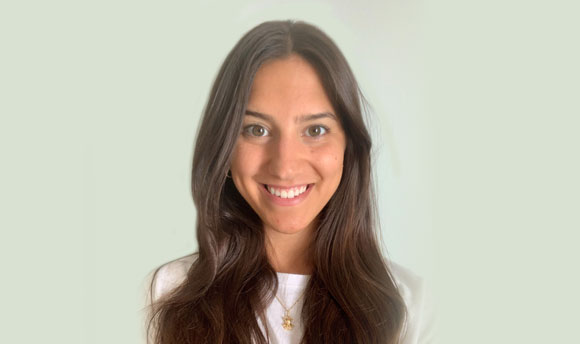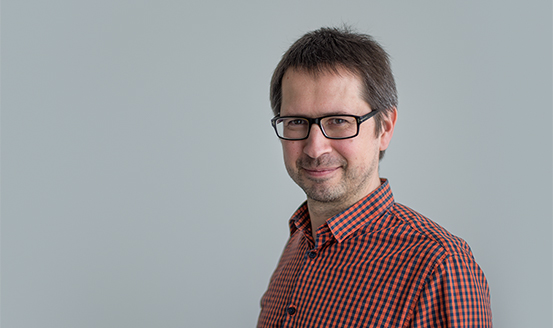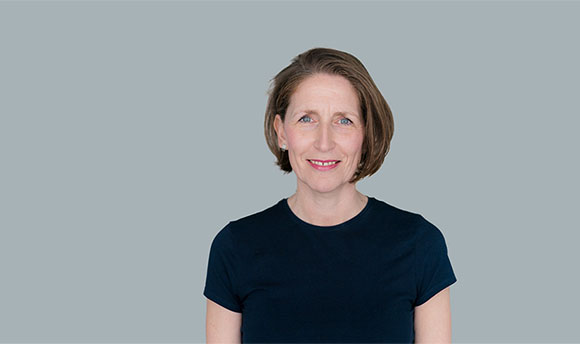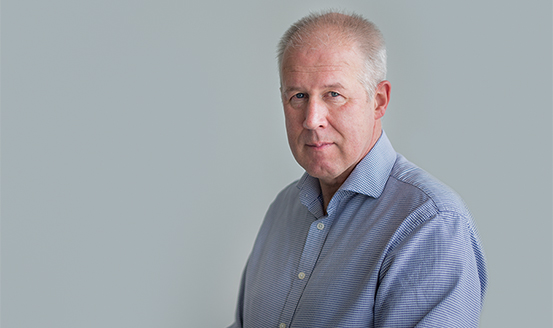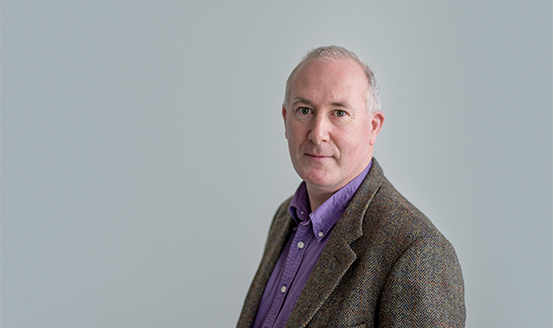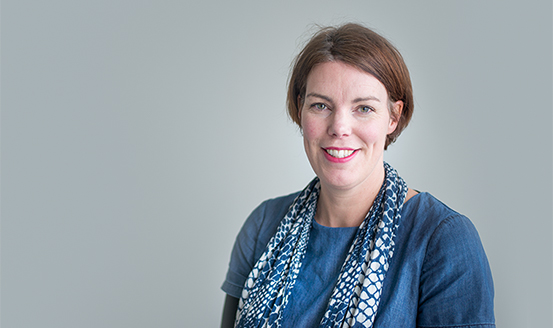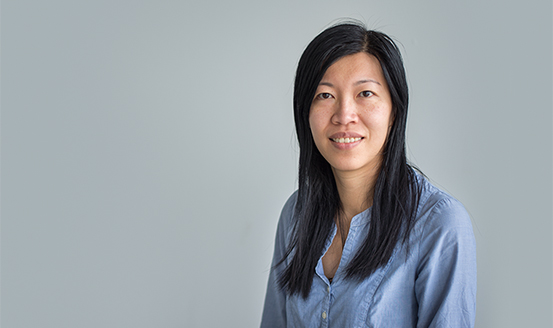This course is now closed for applications for September 2025. Applications will open later in the year for September 2026 entry.
Speech and Language Therapy: Pre-Registration - MSc
This MSc in Speech and Language Therapy (Pre-Registration) course provides graduates with a fast-track route into a career in speech therapy, a profession with excellent employment prospects and the opportunity to work in a variety of settings. As a speech and language therapist you will provide life-changing treatment, support and care for people who have difficulties communicating and/or eating, drinking and swallowing. It can be a very varied and deeply rewarding career.
As a graduate of this course, a fascinating new career path could lie ahead. On completion, you will be eligible to apply for registration with the Health & Care Professions Council (HCPC) and the Royal College of Speech and Language Therapists (RCSLT) and to practise as a speech and language therapist in the UK.
The course is delivered full time over two years and includes practice placements that are invaluable to your learning.
Why QMU?
- Unique in Scotland: The course is the only postgraduate pre-registration course of its kind in Scotland.
- Placements: Your practice placements are an invaluable way of consolidating the theoretical knowledge you learn from weekly teaching, experiential opportunities and small group tutorials. Placements across Scotland offer a variety of urban and rural speech and language therapy experience across a range of Health Boards.
- Innovation: We provide innovative on-campus clinical learning opportunities, such as Peer-Enhanced Electronic Placements, and our research has a focus on the use of innovative technologies
- Professional registration: The course is accredited by the Health & Care Professions Council and confers eligibility to apply for registration with the HCPC as a speech and language therapist. It adheres to the Royal College of Speech and Language Therapists (RCSLT) Curriculum Guidance (RCSLT 2018) and Practice-based Learning Guidance (2021).
- Professional links: We have active links with our professional body, The Royal College of Speech and Language Therapists
- Student society: QMU has an active Speech and Language Therapy Student Society (@qmusltsociety)
Garbhan Cannon, MSc Speech and Language Therapy (Pre-Registration) student, talks about the course
On this course you will undertake both theoretical and practical learning through a range of taught academic modules, a research dissertation and practice-based learning experiences.
The course incorporates four distinct but inter-woven strands: Professional Practice, Foundations for SLT, Speech and Language Pathology, and Research for SLT. These modules are completed in varying sequence across the two years of the course.
Structure and exit awards
You must complete the full MSc (360 credits) to be eligible to register with the Health & Care Professions Council as a speech and language therapist.
Teaching, learning and assessment
Teaching will include a mix of lectures, tutorials, student-led seminars, practice-based learning, case study analysis and individual project work. Emphasis will be placed on integrating clinical and university-based learning opportunities and on independent study. Your performance will be assessed by a combination of assignments, examinations and practical assessments.
Placements
The RCSLT curriculum guidance requires that, on completion of the course, all students have completed the following:
- 100 sessions (50 days) of practice-based learning under the supervision of a registered SLT. 30 sessions (15 days) of which must be with paediatric client groups and 30 sessions of which must be with adult client groups.
- 50 sessions (25 days) of clinically-related activity.
Placements are organised by the Clinical Placement Team. Semester placements are typically for one or two days per week and students will usually be placed across our local catchment area within the Health Boards of Lothian, Borders, Fife, Forth Valley and Tayside.
Summer placements take place in both years of the course and students are typically placed across the whole of Scotland. Although every effort is made to arrange placements to suit students’ circumstances, this is not always possible and students must be prepared to be flexible about placement location and timing. Students are responsible for any travel and accommodation costs associated with their placements.
Teaching hours and attendance
Each module will require you to attend classes and carry out independent work. Your attendance at placement is compulsory and your attendance at QMU-based modules is also expected.
Classes may be spread over the whole week, except for placement days when you will be off campus. This is a full-time course, with the expectation that classes, independent study and placement together require 35-40 hours of dedicated time each week.
Specialist facilities
QMU offers a specialist speech and psycholinguistic laboratory facility for use by both our Master of Speech and Language Therapy and MSc Speech and Language Therapy (pre-registration) courses.
This includes a recording studio, workstations with specialised software and associated hardware for the analysis of speech and speech production. We also provide access to software for design and delivery of online perceptual experiments.
Additionally, our extensive Clinical Resource Library houses the latest editions of commonly used professional assessments and intervention packages to support students’ clinical learning. Located in the Learning Resource Centre, students have 24/7 access to this recently updated resource.
Class sizes
We expect to have 25-35 students on the course each year.
Teaching staff
You can read more about the teaching staff on this course at the bottom of this page. Please note that teaching staff is subject to change.
The following modules are completed in varying sequence across the two years of the course:
- Professional Practice: Practice-based Learning
- Professional Practice: Competencies in Eating, Drinking and Swallowing
- Professional Practice: Clinical and Professional Capabilities
- Professional Practice: Applied Clinical Decision Making
- Professional Practice: Delivering Services that Reflect Diversity
- Professional Practice: Training and Leadership
- Foundations for SLT: Biological and Medical Sciences
- Foundations for SLT: Lifespan
- Foundations for SLT: Introduction to Linguistics
- Foundations for SLT: Speech and Language Analysis and Applications
- Speech and Language Pathology: Acquired Language and Neurogenic Communication Impairments
- Speech and Language Pathology: Developmental and Acquired Dysphagia
- Speech and Language Pathology: Speech Sound Disorders
- Speech and Language Pathology: Developmental Language Disorder
- Speech and Language Pathology: Developmental Disorders of Social Communication
- Speech and Language Pathology: Organic Speech Impairments and Voice Disorder
- Speech and Language Pathology: Physical, Sensory and Intellectual Impairment
- Research for SLT: Understanding and Appraising the Evidence for Practice
- Research for SLT: Applying Skills for Critical Enquiry
Our graduates have excellent employment prospects. Most go on to work within the NHS across a range of settings including clinics, schools, hospitals and the community although an increasing number also take up appointments in private organisations. Some graduates have taken up research posts and some have gone on to study for higher degrees.
International applicants should be aware that students may have to undertake some additional study/examinations to be eligible for registration with the professional body in their own country.
Entry requirements
An upper second class honours degree or above (or equivalent) is required.
Evidence of experience of working with/ caring for/supporting people with communication impairments, for example through professional or voluntary work or personal experience, is essential.
Applicants should be able to evidence that they understand and are passionate about the role of the SLT.
International students: You will be required to provide evidence of English language competence at no less than IELTS 8.0 with no individual element below 7.5.
If you are not a national of a UKVI majority English speaking country, an English language test will be required. For a list of UKVI majority English speaking countries please check the GOV.UK website.
Other requirements
A satisfactory criminal records check from the Protection of Vulnerable Groups (PVG) Scheme, an occupational health check and personal indemnity insurance (normally through membership of the professional body) are required once you are matriculated on the course.
Other costs
- The cost of professional indemnity insurance is the responsibility of the student. For more information on this, visit the PG 2025 fees page on our website.
- The additional costs associated with placement travel and accommodation are the responsibility of the student. Students who receive SAAS funding may be able to claim for some of these expenses to be reimbursed.
- Uniform, PVG and badge costs – please see PG 2025 fees page on our website.
- Professional Indemnity Insurance is available as part of the free student membership of the RCSLT.
Disability/health conditions
If you have a disability, long-term physical or mental health condition, or learning disability, it should not stand in the way of your studying at QMU. However, if you are not sure whether your disability might be a barrier in your studies or in relation to the professional standards, please contact the disability service who will be able to have a conversation with you about reasonable adjustments and supports available to you.
Applying for this course
For more information on applying, or to apply for this course, please follow the links in the 'Start your application' box at the top right of this page.
Application deadline
This course is now closed for applications for September 2025. Applications will open later in the year for September 2026 entry.
In general, the course will remain open until capacity has been reached, specifically we tend to close to new applications in March, but this can vary year on year. We strongly suggest you apply as early as possible.
Please note that this is a two-year full-time, campus-based course. It is not possible to undertake it on a part-time or distance-learning basis.
If you have any queries about the course, do contact SLT Admissions or contact Admissions (QMU's general admissions team).
- The delivery of this course is subject to the terms and conditions set out in our 2025/26 Entry - Terms and Conditions (Postgraduate).
- The information on this page is correct at the time of posting (October 2024) but is subject to change. In the event that modules change, QMU will seek to use reasonable endeavours to ensure that there is no detrimental impact on students. Please keep an eye on this page for updates.
Helena Pinkett, MSc Speech and Language Therapy (Pre-Registration) student, talks about the course
Become your best you: study at QMU
Start Your Application
Course Overview
Join us at one of our Postgraduate Open Events
Find out about online and in-person opportunities to meet with us to find out more about our postgraduate courses and study at QMU.
Postgraduate Open Events - More Info and BookingsCourses You Might Also Like
- MSc Art Psychotherapy
- MSc Audiology (Pre-Registration)
- MSc Diagnostic Radiography (Pre-Registration)
- MSc Dietetics (Pre-Registration)
- MSc Music Therapy
- MSc Occupational Therapy (Pre-Registration)
- MSc Physiotherapy (Pre-Registration)
- MSc Play Therapy
- MSc Podiatry (Pre-Registration)
- MSc Therapeutic Radiography (Pre-Registration)
